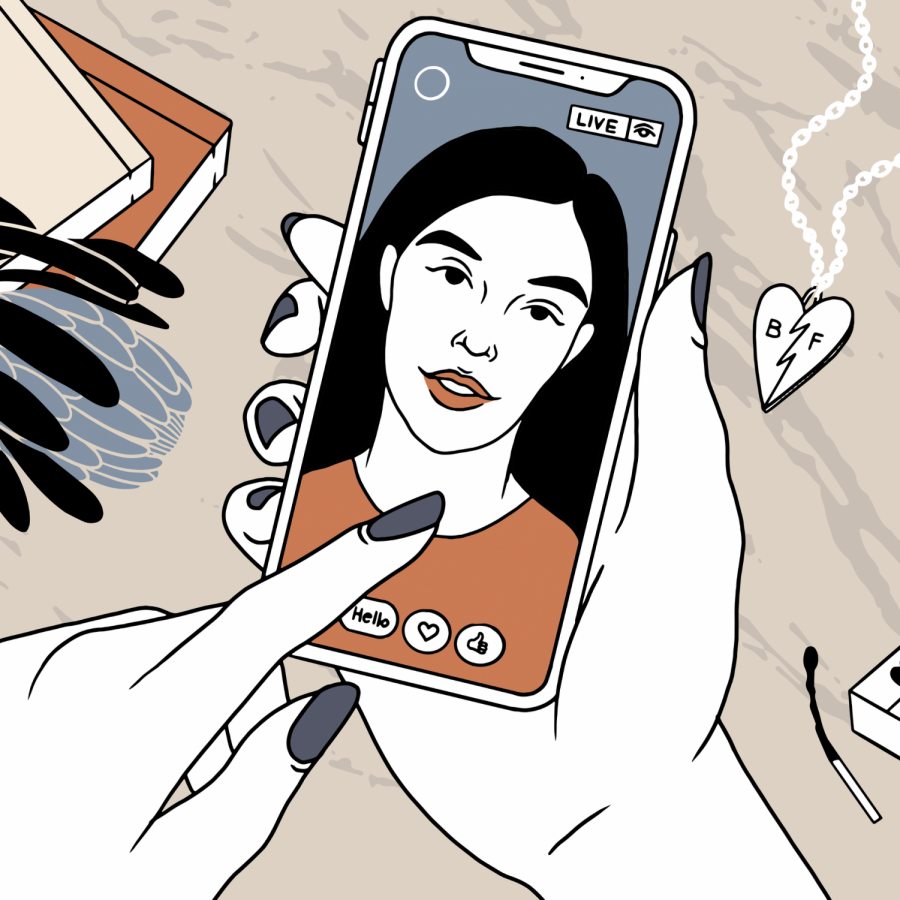You May be in a Parasocial Relationship
Do you get a little rush of joy when you see a new YouTube video from your favorite influencer has dropped, or a stream has started from a gamer you follow? You click the link and your brain thinks “That’s my friend!” even though you don’t actually know them personally.
That’s a parasocial relationship. Even before we were stuck inside for a year with our devices, parasocial relationships were common for anyone spending time online. Maybe you formed this relationship with an influencer you think is cool. Maybe it’s the Youtuber whose videos you always take the time to watch. Parasocial relationships, especially in this age of technology, are everywhere.
What are parasocial relationships, exactly? The term was first coined by Horton and Wolhs in 1956, used initially in reference to radio and television stars. A parasocial relationship is simply the one-sided, impersonal relationship fans have with famous people (“famous” used loosely here). Now, one-sided does not entail zero interaction: in fact, parasocial relationships often have parasocial interactions—a parasocial interaction could be someone replying to your YouTube comment or reading your message in a livestream, as noted in a 2011 paper by Hartman and Goldhorn.
Parasocial relationships are not necessarily bad. It’s human tendency to make connections with others, and nobody is harmed by making friends. As Micheal Blight’s 2015 paper notes, people often derive enjoyment from their favorite streamers or influencers. It’s when the fans—or the creators themselves—overstep boundaries, that these relationships start to sour.
Parasocial relationships often don’t replace human interaction, but instead heighten them, adding a bit of zest to life. It is true, however, that the people most susceptible to parasocial relationships are queer (Bradley, 2018), neurodivergent, ostracized, or simply lonely. A parasocial friendship is, after all, a friendship where things are simple: you don’t have to put in the effort of upholding a personal relationship, and the other person is predictable.
Parasocial relationships are not just pervasive because of human nature though. Companies like Youtube and Twitch both understand and capitalize on these relationships. As evidenced in Paul Webster’s 2015 paper, social media platforms like Youtube give advice—outright parasocial bonding tips—to creators on how to expand their audience. In The Journal of Social Media in Society’s Spring edition 2018, the authors explored how Youtube creates a platform specifically for parasocial relationships and interactions to take place amongst frequent users.
Moreover, parasocial relationships are manipulative in nature: even when these creators aren’t malicious, they still profit off their fans. In Leslie Rasmussen’s article in the aforementioned Journal of Social Media in Society, she notes that people are more likely to buy things YouTubers recommend, because of both their “friend next door” aura and their seeming expertise. In addition, influencers like YouTubers and Twitch streamers financially depend upon their platforms, and cultivating a friendly, pleasant internet persona tends to have a positive effect on their bank accounts. Indeed, the way to success is through parasocial relationships. Companies with Youtube channels want viewers to form relationships with creators because users will keep coming back to their content and merchandise. Though parasocial relationships are fun, it’s useful to think about why these relationships develop, even as you continue to partake in them.
Now, fan participation is where things can get iffy. While parasocial relationships create an illusion of friendship, they are, even by name, simply an echo of a relationship. In social interactions with these creators, it’s important to remember that they are not your friend, and you have no weight or influence in their personal life. Even as a streamer reads your message, there is still an imbalance: the fans know all about the streamer, but the streamer just knows that one message.
Parasocial relationships are fun and can add a spark of color to our lives, but putting too much faith in them is not a good plan.

